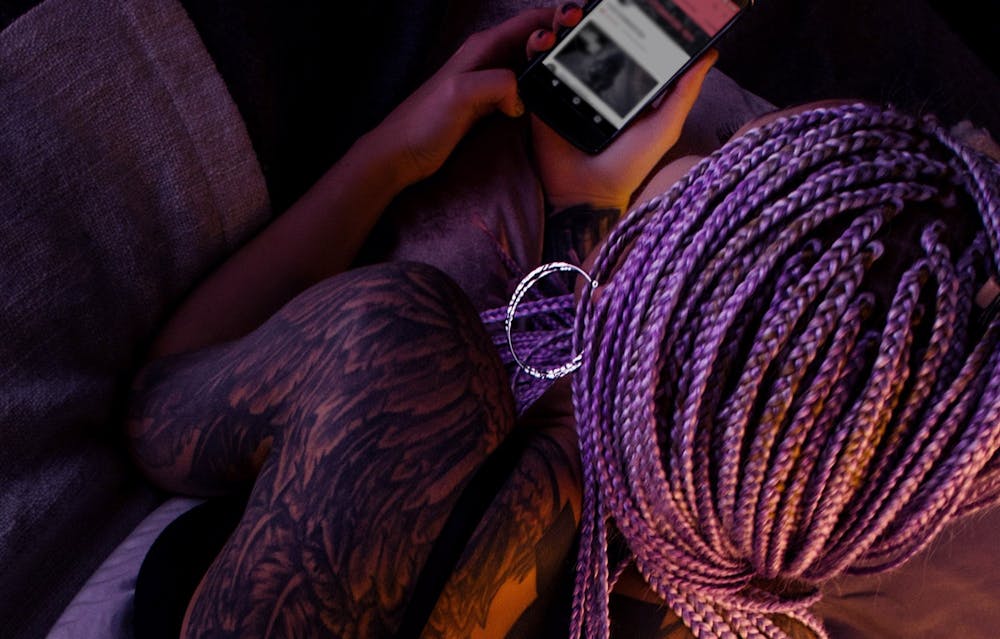Dating can have different obstacles for everyone but the concern that a romantic partner is only interested in you as an exotic object of sexual desire is particularly prominent for women of color.
Fetishization is the treatment of a person as an object, and factors of ethnicity, race, skin color, culture, language and facial features are targeted. Pornhub released their most popular searches in the United States in December 2021, and “Asian,” “Latina” and “Black” were among the top categories.
“I know I’m about to get sexualized from me speaking Spanish and Spanglish,” said Ashley Varela, a political science and international studies major at the University of New Mexico. “There’s also that stereotype, like the ‘crazy Latina’ and, ‘Don’t go Latina on me.’”
Varela said she gets sexual comments just for embracing her Latinx identity and dressing in Chicana streetwear style with accessories like lipliner and hoop earrings.
“Certain styles definitely get sexualized,” Varela said. “You want to embrace your culture, but if you do certain things, you’re going to get sexualized by men.”
Terms like “mami”, “mamacita” and “spicy” are often used to refer to Latinx women due to stereotypes, according to Varela. While they can be considered endearing in some situations, she said it can be creepy coming from strangers.
Guadalupe Lopez, a recent graduate in international studies and Spanish at UNM, said the fetishization of her ethnicity is very closely tied to the objectification of her body. She began experiencing this fetishization at a very young age.
“Men showed interest in me in high school, and a lot of it was based on my body shape or my body figure,” Lopez said.
Lopez recalled a time in high school when a fellow classmate claimed to have a crush on her because of her “big butt” and “exotic” looks. She said she felt disrespected and confronted her classmate but received backlash from her friends for defending herself and not giving the boy a chance.
“His interest is not genuine. It's rather just to fulfill this sexual fantasy about me. And because I defend myself, I'm a bad person,” Lopez said.
Katherine Wang, a women, gender and sexuality studies and biology major at Tufts University, has had similar experiences as an East Asian woman, dating back to high school. Wang recalled a previous relationship where she suspected fetishization from her boyfriend, but it wasn’t until after they broke up that he admitted his interest in her was based in exoticism and how he was “meant to date” an East Asian woman.
A 2018 academic paper concluded that as intimate platforms become more popular, those platforms should engage also as critical structures to research issues of bias, discrimination and exclusion, which may be prevalent in online dating platforms. Dating platforms like Bumble have been working on tackling this issue to create a safer and more welcoming environment for its users, such as making reports on hate speech, catfishing and “unsolicited fetishization” issues easier.
Get content from The Daily Lobo delivered to your inbox
The issue of fetishization affects how women of color approach potential future relationships. Lopez, Varela and Wang all said they constantly wonder whether someone is showing genuine interest or if it’s just related to fetishization.
“it's very hard to feel secure when part of me wonders if the reason they're attracted to me is because of my race or my racial features,” Wang said.
Annya Loya is a freelance reporter at the Daily Lobo. She can be contacted at news@dailylobo.com or on Twitter @annyaloya






